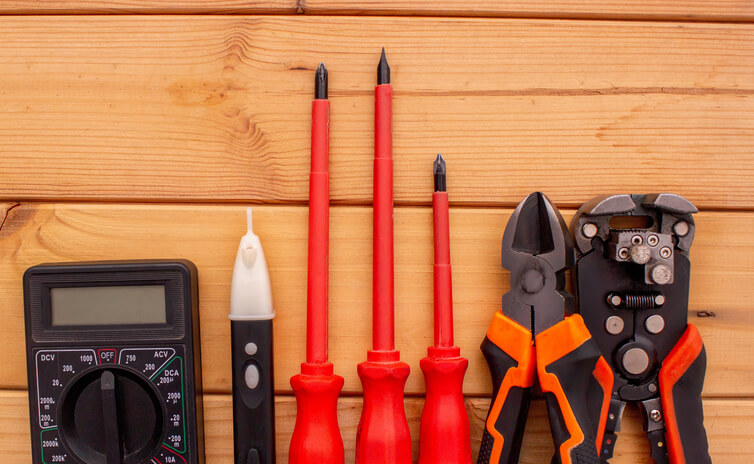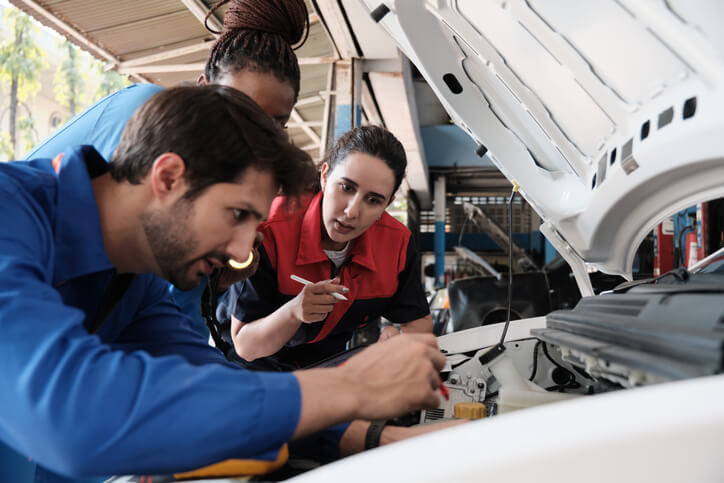EV Maintenance vs. Gas Cars: Key Differences Every Aspiring Mechanic Should Know
Electric vehicles (EVs) are becoming more common on Montreal roads, creating new challenges and opportunities for future auto mechanics. Whether you’re an aspiring Hybrid and Electrical Mechanic or an Auto Mechanic technician, you’ll need to understand how EV maintenance differs from traditional gas-powered vehicle care.
From diagnostics to safety procedures and specialized tools, EVs are reshaping what it means to work in an auto shop.
Maintenance Needs: Simplified Routines (But New Concerns)
Gas cars have many moving parts that require regular attention: oil changes, spark plugs, timing belts, transmission fluids, and more. EVs, in contrast, are mechanically simpler, with fewer parts to service. They don’t require oil changes, valve adjustments, or spark plug replacements. Regenerative braking also extends the life of brake pads and rotors, meaning fewer brake jobs.
That said, EVs are not maintenance-free. Tires wear more quickly due to instant torque, so frequent rotations and pressure checks are vital. EVs also require coolant to regulate battery and inverter temperatures. Cabin air filters, wipers, lights, and tires remain standard service items. In short, maintenance shifts away from fluids and spark plugs to battery care and software updates.
Electric vehicles (EVs) represent a major shift in how aspiring Hybrid and Electrical Mechanics should approach long-term service.
Diagnostics: High-Tech Systems vs. Mechanical Tune-Ups
Traditional gas vehicles rely on mechanical diagnostics like compression tests, fuel pressure checks, and misfire codes. EVs, on the other hand, rely on advanced onboard computers that monitor battery health, motor status, and charging performance in real time. Mechanics will increasingly interface with battery management systems, inverter sensors, and electronic control modules.
EVs also make use of remote diagnostics and over-the-air updates, meaning technicians must be skilled in software as well as hardware. The equipment is evolving too: while OBD-II scanners remain relevant, EV-specific diagnostic tools and manufacturer software are becoming essential.

Safety Procedures: High-Voltage Hazards vs. Combustion Risks
Safety has always been central to automotive work, but the risks differ. Gas cars pose dangers from fuel leaks, exhaust, and hot engines. EVs add the challenge of high-voltage systems running between 400–800 volts. Technicians must de-power vehicles before repairs, follow strict lockout/tagout protocols, and use personal protective equipment like insulated gloves and boots.
Shops servicing EVs often create dedicated safety zones, marking vehicles under high-voltage service with cones or tape. These precautions ensure that EVs, when handled correctly, are just as safe to work on as gas-powered cars.
Tools and Equipment: New Gear Required for Hybrid and Electrical Mechanics
Many standard tools, wrenches, sockets, and lifts remain useful in EV maintenance. However, insulated versions are required when handling electrical systems. Multimeters and diagnostic probes must also be rated for high-voltage applications.
Shops may invest in insulated mats, battery lifts, and EV-specific A/C service machines. Mechanics must also learn how to use software-based tools, such as insulation resistance testers and battery analyzers, which assess safety and performance at a deeper level.

Embracing the Future of Auto Maintenance
EVs and gas cars may share the same roads, but they require different knowledge and skill sets in the shop. For aspiring mechanics, this is an exciting opportunity. By gaining training in both traditional and electric vehicle systems, you’ll be equipped for the changing demands of the industry.
Montreal is seeing more EVs every year, and technicians who understand both technologies will stand out in the job market. Cars are evolving, and the best mechanics will evolve with them.
Are you ready to begin auto mechanic school?
Contact ATC Montreal today!


